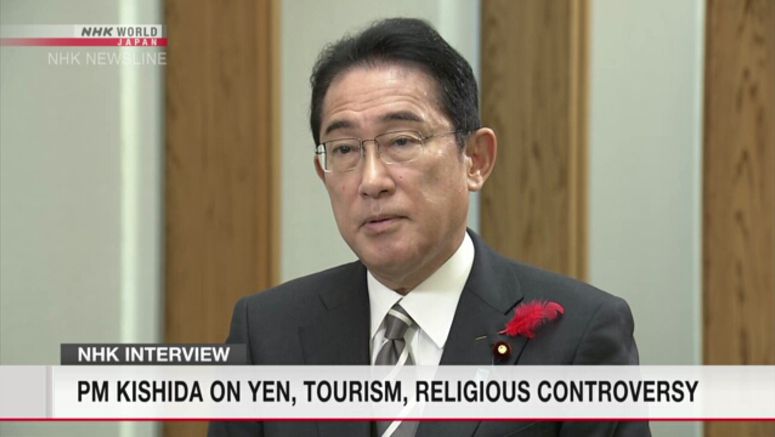Nhk Interview: Pm Kishida Vows To Quickly Deal With Rising Electricity Costs

Japan's Prime Minister Kishida Fumio says he'll act quickly to ease the public's burden from surging electricity bills. He also suggested the possibility of dealing strictly with the religious group formerly known as the Unification Church, in a wide-ranging interview with NHK.
The exclusive interview was held on Friday before the Diet begins full-scale debate on the economy, diplomacy and many other issues next week.
Kishida said electricity bills may rise another 20 to 30 percent next spring. Subsidies to ease the burden on households and businesses are a pillar of the economic package his administration is set to compile this month.
Kishida indicated that the subsidies could be rolled out as soon as next January.
He said he wants to create a system that lets everyone realize how much electricity costs have been curbed, and get it up and running before prices go up further.
On rising food prices, Kishida said he hopes to promote domestic farm produce, fertilizer and feed. He added that new grants will be offered to support planting of wheat, soybeans and feed crops.
Japan recently lifted most of its COVID-19 border controls. The prime minister said various policy packages will be prepared, with the aim of achieving 5-trillon yen, or about 34-billion dollars, in annual spending by foreign tourists. He added that the government will offer financial support to promote tourism and create attractions that appeal to visitors.
On the sharp depreciation of the yen, Kishida said rapid changes in exchange rates that involve speculative moves are undesirable, and that an appropriate response may be required. He added that international coordination is another important factor.
Who will serve as Japan's next central bank governor has become a key focus, with the incumbent's term due to expire in less than six months. The prime minister said he'll thoroughly consider who should lead the Bank of Japan along with specific economic measures the country needs, while looking ahead at possible changes and trends in the economy.
The former Unification Church is coming under scrutiny over allegedly shady marketing practices and solicitation of large donations from members. Kishida said revisions to the Consumer Contract Act and other relevant legislation must be considered, from the viewpoint of offering relief to victims.
Calls have been raised within an advisory panel of experts that the government seek a court order to disband the group under the Religious Corporation Act, or launch an investigation before such a request.
Kishida said there's a need to consider a strict response, while studying relevant laws to confirm what can be done and which actions warrant a response. He suggested the possibility of carrying out an inquiry into the group.
NHK asked the prime minister if he could dissolve the Lower House for a snap election to seek a breakthrough amid sagging Cabinet approval ratings.
Kishida said Japan faces many challenges said to normally occur only once in decades. He also said it is vital to make achievements one by one without wavering, rather than engage in political stunts. He added that he wants to keep working tenaciously and produce results, to restore public trust in politics.
The Lower House Budget Committee is due to begin wide-ranging debate next week.
Kishida said revitalizing Japan's economy is the biggest challenge, and that another major issue is diplomacy and national security, given North Korea's recent ballistic missile launches and the ongoing Russian invasion of Ukraine.
The prime minister said he wants to make the Diet debate a meaningful one that involves in-depth discussions with the opposition bloc.